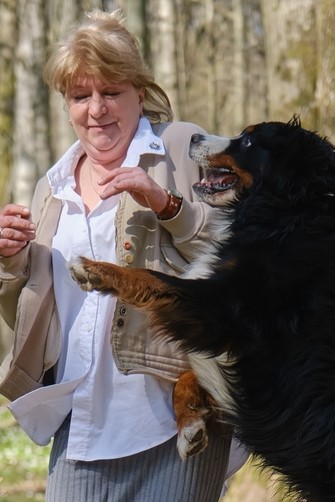Dog Training Basics ? It?s A Snap!
Okay so dog training basics, well there is a lot to say but I will attempt to keep it brief. During my recent research into training my dog I found some every interesting information about dog training.
First of all it seems to be a generally accepted fact that a trained dog is a happy dog. Apparently dogs are like children in this way and crave rules and boundaries in the family unit. They like to know their place and what they are and are not allowed to do. This I found interesting, especially when this information was followed up with the information that much like children, dogs will test their boundaries with you to see what they can get away. I guess this makes sense when you think about it, especially when you realize that your dog actually does test your boundaries even after you have had him for 13 years. Each time you let him out he will run to the edge of where he is allowed to go and then look back to see if you are watching before contemplating whether or not to go further.
The second piece of information that seems to be universaly agreed upon is that the most important part of the dog training basics is praise. I have heard it stressed over and over again that the important thing with training your dog is not yelling at him/her when they do something wrong, but praising them when they do something right. While I understand this, it is basic positive reinforcement theory, I also wonder about not yelling at the dog when they do something wrong. It seems as though you want o show them the correct thing to do but is the dog really capable of comparing the two behaviors and realize that one is used in place of the other? It seems as though in order for them to cease to engage in the incorrect behavior you would need to reprimand them for it. However I guess this thought of mine is incorrect, which is why I recommend one of the many books available on dog training basics. It is hard to know what to do as the most logically response to a problem is not always the correct response.

